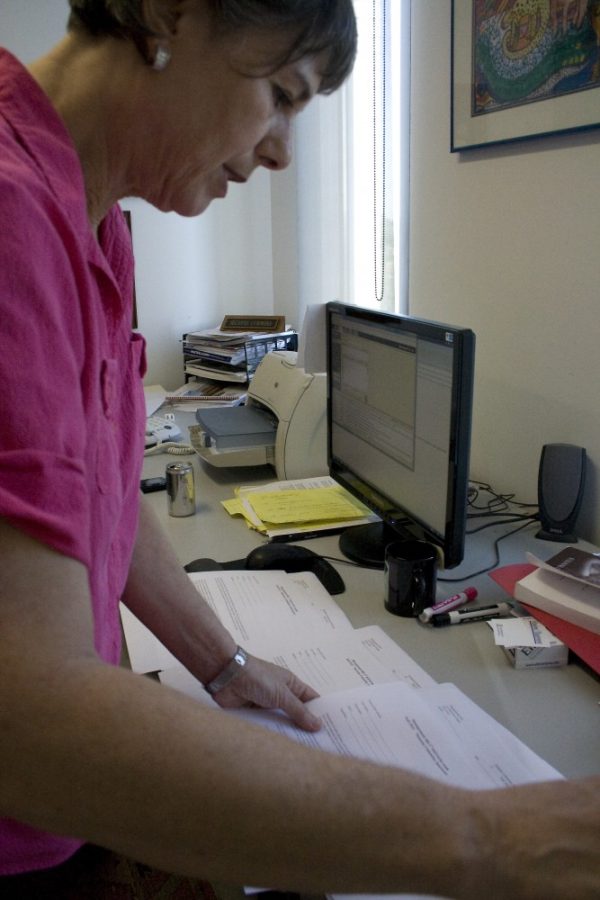Recorded incidents of cheating in the Eller College of Management were down about 70 percent last year compared to 2006 levels.
The college had 16 academic integrity violations in the 2010 to 2011 school year, according to records obtained by the Daily Wildcat. There were 35 violations the previous year and 55 in 2006.
A curriculum change could be part of the decrease, said Pam Perry, associate dean of the undergraduate program in Eller College. Students in a lower-division business class were often caught recycling the projects of other students, while students in a business math class sometimes cheated on team projects, Perry said.
The structure of the courses changed about five years ago, at Eller College’s peak of academic integrity violations. But the impact of cheating on a student’s admittance into the college may also have curtailed violations, Perry said.
“Students realized one decision in pre-business can make or break your future in Eller,” she said. “Students are now very familiar with that.”
Eller College has implemented new techniques to make cheating more difficult, said Suzanne Cummins, a senior lecturer in management and organizations. Enforcement has also increased over the past several years, she said.
“I feel like we all have just had our consciousness raised,” Cummins said.
Cummins said she creates several versions of exams with subtle changes in questions. She then creates a seating map to look for suspicious similarities.
Cummins has also begun using a remote proctor for students taking tests out of the classroom. The sensor records the student and creates a video for the professor to review.
“That’s the kind of energy we’re putting into it,” she said.
The GoodCat Hotline, a website where students can anonymously report cheating, is one resource Eller College professors use to catch systematic cheating. The site was implemented a few years ago and allows students to describe the incidents they witness.
Though students named in the reports are not usually punished, they can be watched more closely. And once professors know how students are cheating, they can change their procedures.
“We can’t always prove cheating,” Cummins said. “But we can prove we’re watching.”
Despite these precautions, cheating still happens, said Zach Matheson, a senior studying management and marketing. He said he’s known people who copy tests or work on homework together.
Professors tell students if there are different versions of exams, but the enforcement at Eller College is similar to the rest of campus, Matheson said.
“They all say the same thing pretty much,” he said.
Cheating is addressed more in business classes than others, said accounting senior Diana Bini. She said she has heard of the GoodCat Hotline but has never witnessed blatant cheating.
“Eller in general really stresses the idea not to cheat,” she said, adding that the consequences are clearly stated.
These consequences vary by teacher, Cummins said. Cheating can lead to larger problems in the business world but is a shortcut due to time and stress and not “evil,” she said.
“I think that this is a change in our philosophy,” Cummins said. “We’re not going to crucify you the first time. We’re going to try to help you.”









